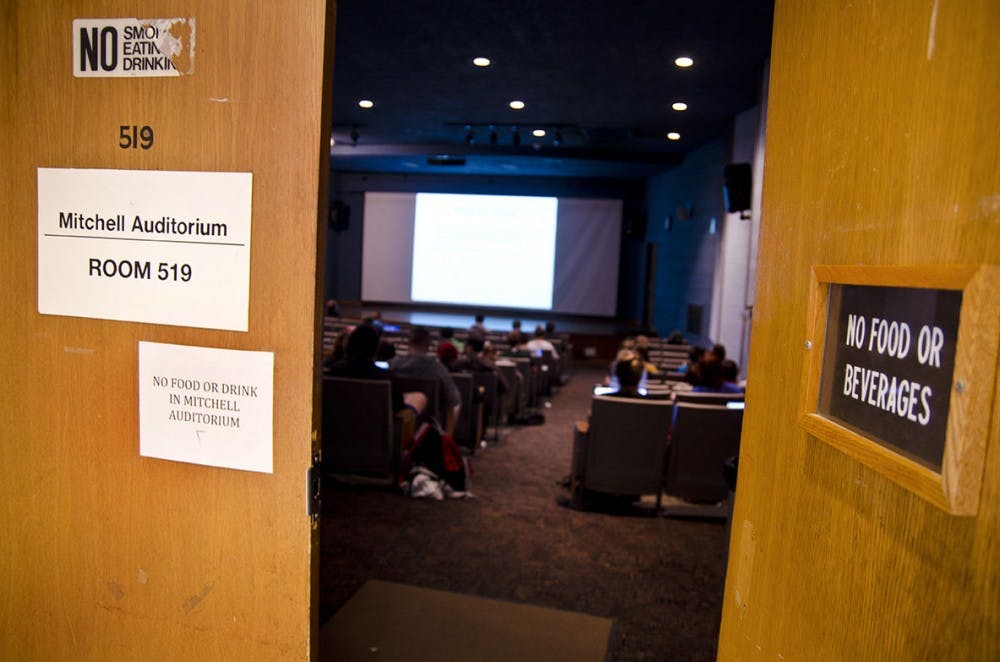Over winter break, plans changed about relocating the Division of Film from the College of Fine Arts to the Scripps College of Communication. The program is not longer set to relocate.
The Division of Film will not be moving from the College of Fine Arts to the Scripps College of Communication, despite officials previously citing budget gaps that caused concern for the college’s future.
Students were told just before Thanksgiving that university officials were beginning the discussion to start the University Curriculum Council’s program relocation process.
But conversations that took place near winter break changed the plans.
“We had a really good conversation … when it was told to the greater community of the College of Fine Arts, clearly there was a reaction to that. You’re losing one of your own,” said Steven Ross, the artistic director of the Division of Film. “So the faculty galvanized and let their feelings be known, and the budget was re-evaluated.”
After re-evaluating for next year, Ross said the conclusion of an early December meeting determined the budget situation wasn’t “as dire as it first appeared.”
In an interview before winter break, Margaret Kennedy-Dygas, dean of the CoFA, said the college would need a 50 percent increase in government grant funding to operate.
The CoFA would need only a 25 to 30 percent increase if the film program moved to the Scripps College, Kennedy-Dygas said.
Additionally, she said the CoFA needed half a million dollars more to keep film in the college. Kennedy-Dygas was not available for an updated comment on the budget concerns because of a sudden illness Wednesday morning.
Despite this, the Division of Film will remain in the CoFA. However, academic partnerships with the Scripps College will continue to be pursued.
“The one thing that’s not being accomplished is (that) we’re leaving a difficult financial situation as it is,” said Drew McDaniel, director of the School of Media Arts and Studies, which was supposed to be the film program’s new home after the relocation. “We’re not trying to solve it. Instead, we’re trying to make nice between two schools. … I think there’s a new commitment on both sides to try to make something work. I’m pretty sure we’ll come up with some things that will be good, but they won’t solve the core problem of finance and budgets. … It will be an ongoing issue just as it has been for decades.”
In the email, Kennedy-Dygas said the college’s faculty met with Pam Benoit, executive vice president and provost, who asked for the conversation to switch from a financial one to one focusing on academic partnerships.
Benoit did not immediately return a request for comment.
The programs at Ohio University work under the Responsibility Center Management budget model, which Ross said basically gives value to the number of majors and graduate rates in a program. The film program is graduate-only and thus has no undergraduate population of support.
McDaniel said one of the main ways to partner would be to further offer the film courses to media students and have the film graduate students instruct introductory media courses.
“If film is helping increase numbers in the Media Arts and Studies and College of Communication, is it like us versus them, or are we going to be like sister colleges where we will get the recognition for helping growth somewhere else?” Ross said. “In my discussions with the provost, the answer seems to be, yes, that partnerships are really being supported and they want new partnerships.”
Scott Titsworth, dean of the Scripps College, said his main focus is on collaborating between colleges, because to not take this opportunity would be a “travesty.”
However, no one knows what the future will hold.
“The terms of the discussion are being redefined in ways that aren’t clear yet because we don’t really know what collaboration means, what the possibilities are,” McDaniel said. “It has to be a win-win relationship. Both sides have to profit from this.”
As of now, only the financial questions are up in the air. The other parts of the initial discussion to relocate the film program are essentially intact.
“The budget wasn’t as bad, but in lieu of film … relocating and then … starting to have conversations about partnerships, film is not moving, but we’re still going to have the conversations,” Ross said.
@buzzlightmeryl
mg986611@ohio.edu






